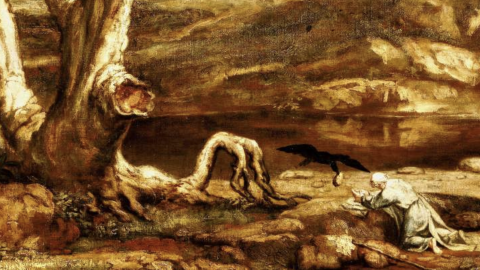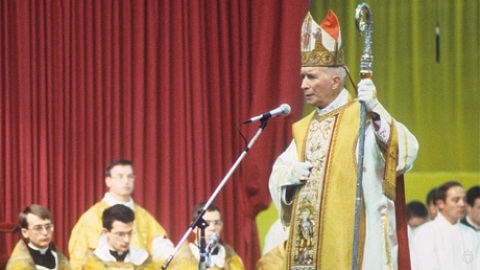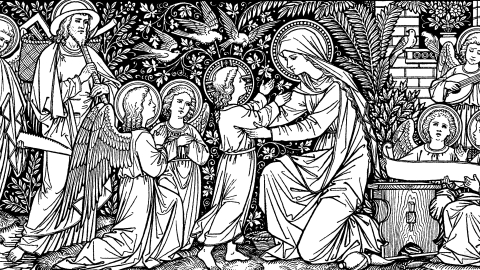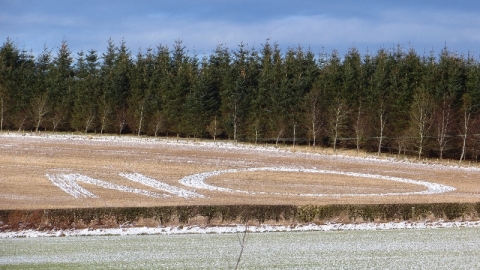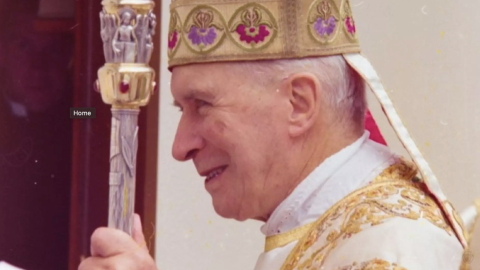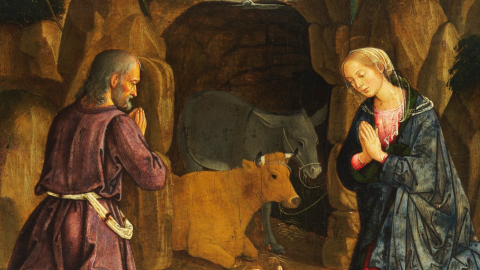Christ the King
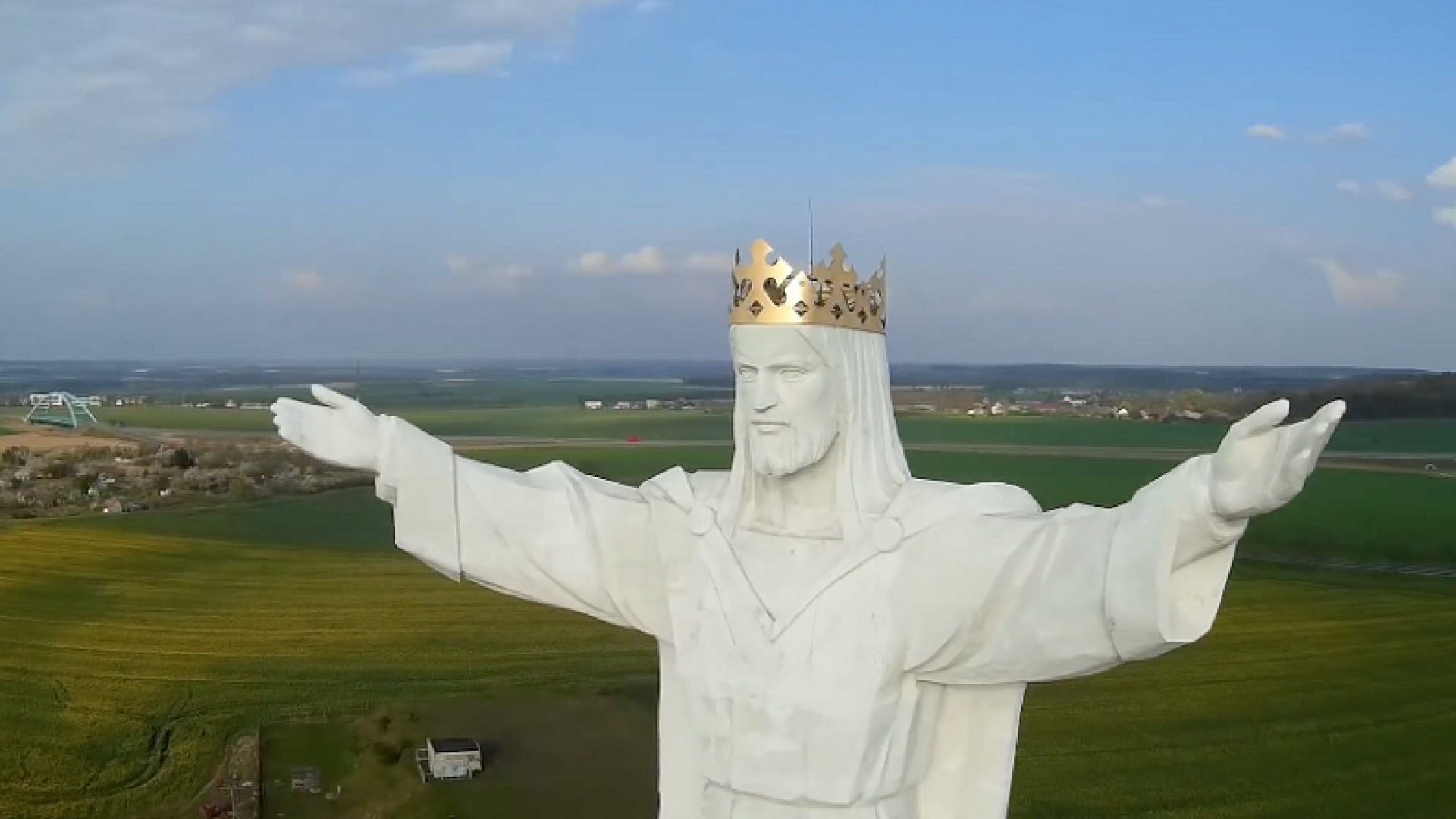
Christ the King
On 11th December 1925, Pope Pius Xi promulgated the encyclical Quas Primas by which he established the feast of Christ the King.
The world had been torn apart by the Great War: millions were dead, and wounded; families, communities, towns, economies, and even countries were destroyed thanks to the pride and greed and godlessness and foolishness of princes, politicians, commercial magnates and military generals. They had not followed the Lawgiver, the Judge and the Executor: the King of Kings by Whom alone there can be true peace and prosperity.
It was the opportune moment to remind mankind that Christ was King: in heaven and on earth.
Here are some annotated extracts from the encyclical (annotations as titles, and text in italics, and emphasis in bold).
How Christ is said to be King
Metaphorically "He's The Best"
It has long been a common custom to give to Christ the metaphorical title of "King," because of the high degree of perfection whereby he excels all creatures [eg. like the world's best footballer or boxer might be acclaimed the "king" of the division]
- So he is said to reign "in the hearts of men," both by reason of the keenness of his intellect and the extent of his knowledge,
- and also because he is very truth, and it is from him that truth must be obediently received by all mankind.
- He reigns, too, in the wills of men, for in him the human will was perfectly and entirely obedient to the Holy Will of God, and further by his grace and inspiration he so subjects our free-will as to incite us to the most noble endeavors.
- He is King of hearts, too, by reason of his "charity which exceedeth all knowledge."
- And his mercy and kindness which draw all men to him, for never has it been known, nor will it ever be, that man be loved so much and so universally as Jesus Christ.
Strict Sense as a man
But if we ponder this matter more deeply, we cannot but see that the title and the power of King belongs to Christ as man in the strict and proper sense too. For it is only as man that he may be said to have received from the Father "power and glory and a kingdom," since the Word of God, as consubstantial with the Father, has all things in common with him, and therefore has necessarily supreme and absolute dominion over all things created.
Foundation of His Kingship as a man
By the Hypostatic Union
The foundation of this power and dignity of Our Lord is rightly indicated by Cyril of Alexandria. "Christ," he says, "has dominion over all creatures, a dominion not seized by violence nor usurped, but his by essence and by nature." His kingship is founded upon the ineffable hypostatic union.
From this it follows not only that Christ is to be adored by angels and men, but that to him as man angels and men are subject, and must recognize his empire; by reason of the hypostatic union Christ has power over all creatures.
As the Redeemer
But a thought that must give us even greater joy and consolation is this that Christ is our King by acquired, as well as by natural right, for he is our Redeemer.
Would that they who forget what they have cost their Saviour might recall the words: "You were not redeemed with corruptible things, but with the precious blood of Christ, as of a lamb unspotted and undefiled." We are no longer our own property, for Christ has purchased us "with a great price"; our very bodies are the "members of Christ."
Nature of Christ's Kingship as a man: Threefold Power
Let Us explain briefly the nature and meaning of this lordship of Christ. It consists, We need scarcely say, in a threefold power which is essential to lordship. This is sufficiently clear from the scriptural testimony already adduced concerning the universal dominion of our Redeemer, and moreover it is a dogma of faith that Jesus Christ was given to man, not only as our Redeemer, but also as
- a law-giver, to whom obedience is due. Not only do the gospels tell us that he made laws, but they present him to us in the act of making them. Those who keep them show their love for their Divine Master, and he promises that they shall remain in his love.
- He claimed judicial power as received from his Father, when the Jews accused him of breaking the Sabbath by the miraculous cure of a sick man. "For neither doth the Father judge any man; but hath given all judgment to the Son." In this power is included the right of rewarding and punishing all men living, for this right is inseparable from that of judging.
- Executive power, too, belongs to Christ, for all must obey his commands; none may escape them, nor the sanctions he has imposed.
Nature of Christ's Kingdom
Spiritual Kingdom
This kingdom is spiritual and is concerned with spiritual things. That this is so the above quotations from Scripture amply prove, and Christ by his own action confirms it.
- On many occasions, when the Jews and even the Apostles wrongly supposed that the Messiah would restore the liberties and the kingdom of Israel, he repelled and denied such a suggestion.
- When the populace thronged around him in admiration and would have acclaimed him King, he shrank from the honour and sought safety in flight.
- Before the Roman magistrate he declared that his kingdom was not of this world.
Entrance to the Kingdom
The gospels present this kingdom as one which
- men prepare to enter by penance,
- and cannot actually enter except by faith and by baptism, which, though an external rite, signifies and produces an interior regeneration.
- This kingdom is opposed to none other than to that of Satan and to the power of darkness.
Demands of the Kingdom
It demands of its subjects
- a spirit of detachment from riches and earthly things,
- and a spirit of gentleness.
- They must hunger and thirst after justice,
- and more than this, they must deny themselves and carry the cross.
Power over earthly kingdoms
[Christ said to Pilate, "My Kingdom is not of this world" because His kingdom was a spiritual kingdom, but this does not mean that His kingdom has no bearing on, or power over earthly affairs: it does not mean that Church and State should be separate. Having dominion over all creatures, Christ has legislative, judicial and executive power over both the individual and any collective they may form - including the state].
It would be a grave error, on the other hand, to say that Christ has no authority whatever in civil affairs, since, by virtue of the absolute empire over all creatures committed to him by the Father, all things are in his power [including earthly kingdoms].
Therefore, by Our Apostolic Authority We institute the Feast of the Kingship of Our Lord Jesus Christ to be observed yearly throughout the whole world on the last Sunday of the month of October - the Sunday, that is, which immediately precedes the Feast of All Saints. We further ordain that the dedication of mankind to the Sacred Heart of Jesus, to be renewed yearly.
My dear brethren, if this feast was necessary in 1925, how much more so is it necessary today. The reign of Christ the King should be our greatest ambition in all our dealings with the world, and also within the precincts of our hearts.
First holy Communion
Today, a young girl, Nadia, will receive her First Holy Communion, may Christ the King reign in her heart and in all of our hearts that He may truly be our King. I will finish the sermon with the first 8 verses of Psalm 95 as it so perfectly expresses this sentiment:
Come let us praise the Lord with joy: let us joyfully sing to God our saviour.
Let us come before his presence with thanksgiving; and make a joyful noise to him with psalms.
For the Lord is a great God, and a great King above all gods.
For in his hand are all the ends of the earth: and the heights of the mountains are his.
For the sea is his, and he made it: and his hands formed the dry land.
Come let us adore and fall down: and weep before the Lord that made us.
For he is the Lord our God: and we are the people of his pasture and the sheep of his hand.
To day if you shall hear his voice, harden not your hearts:
